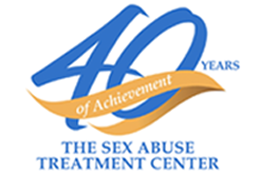About the Sex Abuse Treatment Center (SATC)
 The Sex Abuse Treatment Center (SATC) of Kapi'olani Medical Center for Women & Children provides comprehensive services for survivors of sexual assault and helps serve statewide needs in partnership with other organizations across the neighbor islands. This includes medical care, crisis counseling, and therapy. SATC also works to prevent sexual violence and create positive change through public policy, awareness, and education.
The Sex Abuse Treatment Center (SATC) of Kapi'olani Medical Center for Women & Children provides comprehensive services for survivors of sexual assault and helps serve statewide needs in partnership with other organizations across the neighbor islands. This includes medical care, crisis counseling, and therapy. SATC also works to prevent sexual violence and create positive change through public policy, awareness, and education.
Our mission
Our mission is to support the emotional healing process of those who experience sexual assault in Hawai'i, increase community awareness about their needs, and reduce the incidence of all forms of sexual violence.
SATC’s leadership ensures the integrity of sexual assault treatment and prevention services statewide. Through research and education, we aim to reduce sexual violence and improve clinical practices. We also collaborate with community organizations and agencies to improve responses to sexual violence. By promoting and engaging in public policy we seek to change the public's perceptions of sexual violence, overcome barriers to treatment and prevention, and ensure that the criminal justice system is responsive to the needs of survivors.
Our history
The Sex Abuse Treatment Center was established in 1976 in response to the community's concern over the absence of medical, psychological, and legal support services for victims. At the time there was no facility in Hawai'i for victims of sexual assault to receive comprehensive and confidential care.
With State government funds SATC implemented 24-hour crisis and legal support services for victims and their families and developed the protocol for the medical examination and legal evidence collection for sexual assault crimes. In addition, counseling services were provided to victims and their families following the initial crisis. Medical personnel, police, and prosecutors were also trained on victim sensitivity. With this support, victims became increasingly willing to report sexual assault to the police, testify in court, and were better able to recover from trauma.
In the 1980's SATC implemented prevention education and awareness programs for children and adolescents. Training and consultation services for professionals were also enhanced. During this time major milestones were accomplished for sexual assault survivors through collaborative policy efforts with community agencies and law enforcement. Laws were enacted to protect victim counseling information; to provide mandatory HIV testing of sex offenders, and to establish sex offender registration. Statutes and policies were also strengthened to enhance penalties for sex offenders.
SATC took on a statewide profile in the 1990's through contract administration for statewide sexual assault services. SATC provides the programmatic and fiscal oversight of sexual assault services, as well as technical assistance and consultation, to the sexual assault centers on Kaua'i, Maui and the island of Hawai'i.
Services
Crisis response
- 24/7 crisis hotline and web chat for immediate counseling, information, and referral services, including immediate assistance accessing medical-forensic examination services.
- In-person crisis and short term follow-up counseling and legal systems advocacy.
- Outreach and supportive services to coordinate ongoing care.
- Phone information and referral for non-crisis inquiries about sexual violence and other requests.
Medical-Forensic Examinations
- 24 hours/7 days a week immediate medical forensic examination by a trained physician. This includes medical evaluation, collection of legal evidence, and treatment.
- Exams are done within 120 hours of assault with use of a standardized sexual assault kit.
- A Crisis Counselor is present to provide emotional support and advocacy.
- Post-120 hour medical evaluation of minors by a trained physician. A crisis counselor is present to provide emotional support to the child and their family.
Counseling, therapy, legal systems advocacy
- Assessment and treatment planning, including referrals for medication
- Individual, family, group, and couples’ therapy
- Supportive services to coordinate care
- Continuous evaluation of care and progress
- Support and care for victims through judicial proceedings, both civil and criminal
Education and outreach
- Curricula-based sexual violence prevention education for school aged children (pre-school to 12)
- Education and information about sexual violence topics for community organizations
- Media activities and community-based wellness events to promote awareness of sexual violence and SATC’s services
- Training and consultation to professionals on the identification, response, and treatment of sexual violence survivors
- Participation in degree programs for the training and education of professionals
- Participation in community meetings, coalitions, and task force groups
- Advocacy to shape laws, reform systems, and improve services
- Data collection and generation of research, publications, and literature about sexual violence
Capacity building services
- Delivery of standardized, statewide sexual violence services

